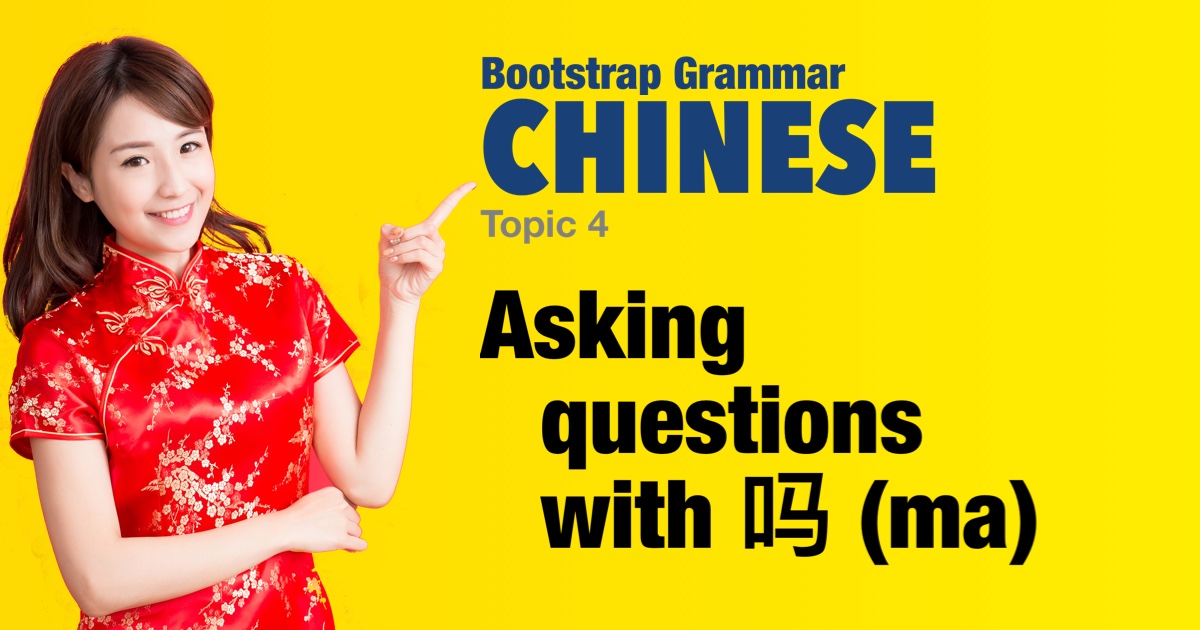Chinese grammar - Asking questions with 吗 (ma) |
|||
|
|||
Asking a question in Chinese can be as simple as adding the question particle 吗 () at the end of a declarative statement. This turns the statement into a 'yes-no' question. Questions can also use the negation marker 不 () for negative questions - so for example turning 'Do you…?' into 'Don't you…?' So the pattern for questions is: [subject] + [verb] + [object] + 吗? Note that in Chinese there is no inversion of word order to form questions. The particle 吗 typically pronounced in a neutral tone, also known as a light tone, which makes it less emphasized than other words. |
| Examples: | |
|
你是学生吗?
nǐ shì xuéshēng ma? Are you [a] student?
|
|
|
他是老师吗?
tā shì lǎoshī ma? Is he [a] teacher? |
|
|
你是中国人吗?
nǐ shì zhōngguó rén ma? Are you [a] Chinese [person]? |
|
|
他是美国人吗?
tā shì měiguó rén ma? Is he [an] American [person]? |
|
|
他是学生吗?
tā shì xuéshēng ma? Is he [a] student? |
|
|
你是老师吗?
nǐ shì lǎoshī ma? Are you [a] teacher? |
|
|
你不是医生吗?
nǐ bú shì yīshēng ma? Are you not [a] doctor? |
|
|
你不是中国人吗?
nǐ bú shì zhōngguó rén ma? Are you not [a] Chinese [person]? |
|
|
你喝茶吗?
nǐ hē chá ma? Do you drink tea? |
|
|
你不吃米饭吗?
nǐ bù chī mǐfàn ma? Don't you eat rice? |
|
|
中国人喝咖啡吗?
zhōngguó rén hē kāfēi ma? Do Chinese people drink coffee? (or Does [the] Chinese person...) |
|
|
他喝酒吗?
tā hē jiǔ ma? Does he drink alcohol? |
|
|
美国人不吃米饭吗?
měiguó rén bù chī mǐfàn ma? Don't American[s] eat rice? |
|
|
她不喝酒吗?
tā bù hē jiǔ ma? Doesn't she drink alcohol? |
|
|
他吃肉吗?
tā chī ròu ma? Does he eat meat?
|
|
|
你喝啤酒吗?
nǐ hē píjiǔ ma? Do you drink beer?
|
|
 |
|


 Pattern:
Pattern: 
